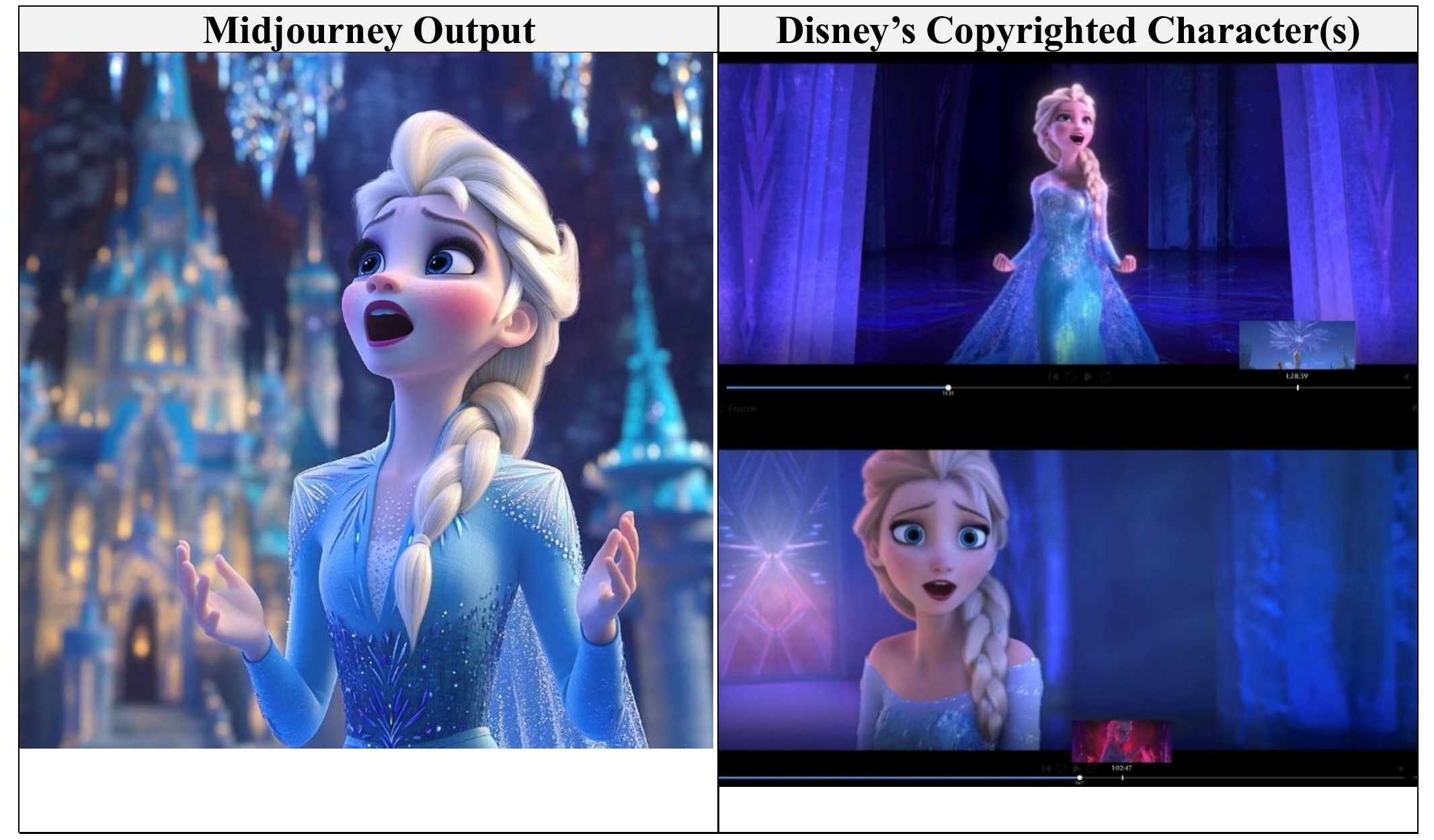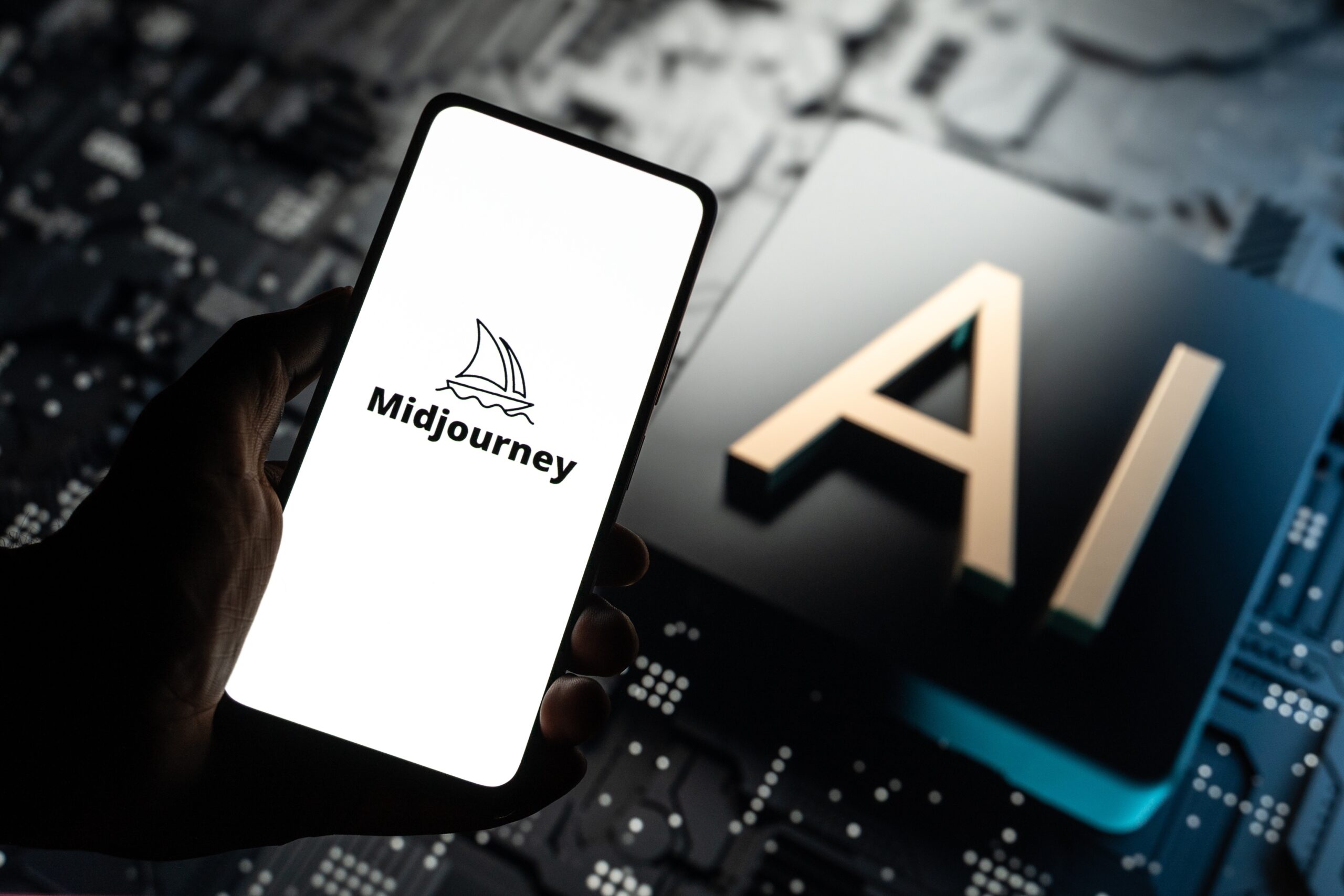Hollywood Strikes Back: Disney and Universal Sue A.I. Platform Midjourney for Copyright Infringement
by Daniel Jason Ain
In a landmark legal action, Disney and Universal have jointly filed a lawsuit in the U.S. District Court for the Central District of California against generative A.I. image platform Midjourney. This marks the first time that major Hollywood studios have sued A.I. startups for copyright infringement.
The 110-page complaint alleges that Midjourney engaged in copyright infringement at both the input level, in training its A.I. product, as well as the output level, with its text-to-image service. Specifically, the plaintiffs claim that the company has trained its A.I. technology on protected works without authorization and now generates output that unlawfully reproduces or creates derivative versions of well-known characters owned by Disney and Universal. The plaintiffs note that “by helping itself to Plaintiffs’ copyrighted works, and then distributing images (and soon videos) that blatantly incorporate and copy Disney’s and Universal’s famous characters—without investing a penny in their creation—Midjourney is the quintessential copyright free-rider and a bottomless pit of plagiarism.” As the complaint puts it: “Piracy is piracy, and whether an infringing image or video is made with AI or another technology does not make it any less infringing.”[1]
Disney and Universal allege that Midjourney continued to release product updates that produce increasingly detailed and realistic infringing content, even after having received a cease-and-desist letter from the plaintiffs. The lawsuit characterizes Midjourney’s conduct as “systematic, ongoing, and willful.”
The complaint also highlights the commercial success of Midjourney, noting that the platform reportedly served over 21 million users with estimated annual revenue of $300 million, earned through four tiers of paid subscriptions ranging from $10 to $120 per month.
A substantial portion of the complaint is devoted to detailed side-by-side comparisons of user prompts and Midjourney’s resulting image outputs. Disney and Universal claim these outputs reproduce their “unforgettable copyrighted characters,” including Princess Elsa, Buzz Lightyear, Shrek, and characters from Star Wars and The Simpsons, by generating unauthorized reproductions and derivatives through its image services. Examples include:
- “In response to the prompt, ‘Princess Elsa singing in front of an ice castle, Frozen animated movie,’ Midjourney accessed the data about Disney’s Copyrighted Works that is stored by the Image Service and then reproduced, publicly displayed, and made available for download an image output that copies Disney’s Princess Elsa character, as shown in this screenshot:” [2]

- “In response to the prompt, ‘Bart Simpson riding a skateboard,’ Midjourney accessed the data about Disney’s Copyrighted Works that is stored by the Image Service and then reproduced, publicly displayed, and made available for download an image output that copies Disney’s Bart Simpson, as shown in this screenshot:” [3]

The plaintiffs also assert that the generation of such image outputs would not be possible without Midjourney having trained its A.I. model on copyrighted source material, which they allege was done without Disney’s or Universal’s permission. Accordingly, the lawsuit targets both the training inputs and the generative image outputs in alleging copyright infringement.
The studios seek actual damages and Midjourney’s profits “in an amount according to proof,” or alternatively, statutory damages up to $150,000 per infringing work under 17 U.S.C. § 504.[4]
As the case unfolds, it will be interesting to see how Midjourney responds to Disney and Universal’s allegations, and what precedent this may set for the rapidly evolving intersection of artificial intelligence and intellectual property law.
[1] Compl. ¶ 2, Disney Enterprises, Inc. v. Midjourney, Inc., No. 25 CIV. 05275 (C.D. Cal. June 11, 2025)
[2] Id. at ¶ 102
[3] Id. at ¶ 88
[4] Id. at ¶ 208
This article is intended as a general discussion of these issues only and is not to be considered legal advice or relied upon. For more information, please contact RPJ Counsel Daniel Jason Ain who counsels clients in areas of entertainment, media and literary, intellectual property and employment law. Mr. Ain is admitted to practice law in the State of New York and the District of Columbia.


